Government clerk and reluctant spy Laurence Jago has good reason to conceal his French language prowess on gaining promotion and leaving the Foreign Office attics for the corridors of power in Leonora Nattrass’s debut novel Black Drop.
July 1794, and the streets of London are filled with rumours of revolution. Political radical Thomas Hardy is to go on trial for treason, the war against the French is not going in Britain’s favour, and negotiations with the independent American colonies are on a knife edge.
Laurence Jago – clerk to the Foreign Office – is ever more reliant on the Black Drop to ease his nightmares. A highly sensitive letter has been leaked to the press, which may lead to the destruction of the British Army, and Laurence is a suspect. Then he discovers the body of a fellow clerk, supposedly a suicide.
Blame for the leak is shifted to the dead man, but even as the body is taken to the anatomists, Laurence is certain both of his friend’s innocence, and that he was murdered. But after years of hiding his own secrets from his powerful employers, and at a time when even the slightest hint of treason can lead to the gallows, how can Laurence find the true culprit without incriminating himself?
Black Drop rushes off the page in an urgent whisper that captures your attention right from its cloak-and-dagger opening. It’s the stroke of midnight on 5 November 1794 and a young clerk has hurried home to set down the truth as he sees it: here is the confession of Laurence Jago, Clerk to the Foreign Office, while he still has an opportunity to make it.
The book swiftly continues apace from there with Leonora Nattrass taking us to the scene of a public execution where our young clerk is on his way to a rendezvous at the foot of the scaffold. We’re jostled and shoved along with him through the gathering crowd and it gives us a real sense of the public unrest and suspicion rife at the time, which forms the historical backdrop to the book. It’s a highly-charged atmosphere; Black Drop‘s world one in which danger is ever present. Characters don’t trust each other; reputations and political careers rely on capricious patronage and can turn on a sixpence; Laurence almost constantly feels as if he’s being followed or watched, haunted even (typically when under the influence of opium), but rarely sees who by unless they want him to; the streets teem with the threat of violence from unseen assailants, and lives and livelihoods appear in a state of flux and constant jeopardy.
I found myself like Will Benson, starting at shadows… Alleys and doorways frightened me, and my skin crawled. Black Drop and terror combined to floor me, and for a week I took to my bed, white-faced and trembling among the sheets.
Laurence Jago intrigued me from the outset and I warmed to him the more I read the book. He’s a young man, who finds himself somewhere he wouldn’t be, had he not concealed certain information from his employers. And yet, his past actions also fully justify questioning where his present loyalties lie. He’s a puzzle and increasingly partial to a drop of opium to ease him through the workday or stressful social events, which makes him a somewhat unreliable narrator. His relationship with the mysterious woman in black, Aglantine, is problematic and risks compromising his position. But there’s also good in him, too. He refuses to stand by and do nothing when a fellow clerk is falsely accused and acts to exonerate his name.
His neighbour, the journalist William Philpott, is a terrific character who I adored. He’s an absolute joy, livening things up with his wry, impish humour and lack of regard for leaving some matters to the proper authorities. He’s also great at inveigling them in to places and provides a good foil to Jago’s fear of discovery and persecution, as does the eminent barrister, Thomas Erskine MP, KC, who has taken on Thomas Hardy’s case. He exudes calm and reason while he (almost) undertakes a one-man crusade against injustice and false imprisonment and it was wonderful to have a noble, almost heroic, lawyer figure to champion for a change. We’re not often portrayed so kindly. Philpott and Erskine bring some much-needed comic relief and hope to proceedings in Black Drop.
Leonora Nattrass skilfully manoeuvres her fictional characters around London, inserting them seamlessly into Black Drop‘s nefarious world of political intrigue among its real historical figures. And it’s rather fitting that a novel about international political intrigue and espionage deals with events in the run-up to 5 November 1794 or Guy Fawkes Night, that all-too British annual celebration of the failed plot to blow up Parliament in 1605. As more and more bonfires are built around London and the numbers raising money on the streets with their dummy Guys increase, so does the tension. Laurence Jago feels the net closing in on him and fears he will be whisked away to a dark dungeon before anyone knows his side of the story.
Happily, we do hear it and how. Black Drop is a vivid depiction of London in 1794, with all its political manoeuvring amid a tangle of virtue and vice, secrets and lies, unrest on the streets, espionage in the shadows and faltering moves towards justice and reform. Ultimately hopeful and a total joy to read, Black Drop is a deliciously dark tale of intrigue, deception and the inherent danger in keeping secrets. I cannot wait to join Laurence Jago on another tumultuous adventure when he sets sail in the sequel next year.
Black Drop by Leonora Nattrass is published by Viper Books, the crime imprint of Serpent’s Tail. It is available as an audiobook, ebook and in hardback from this Thursday with the paperback due out next year. You can pre-order it from Amazon UK (affiliate link), Bookshop.org (affiliate link), Hive and Waterstones. For more on Leonora Nattrass, check out her Author Website or follow her on Twitter.
My thanks to Rosie Parnham at the publisher for providing me with a review copy.
Be sure to check out the other stops on the blog tour as there are some great posts and reviews going up.
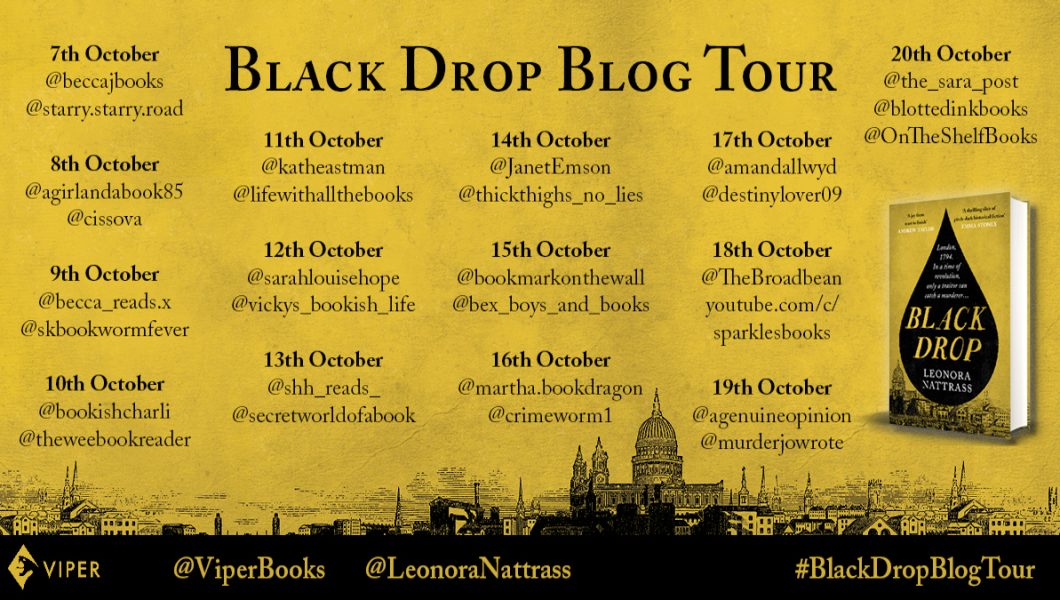
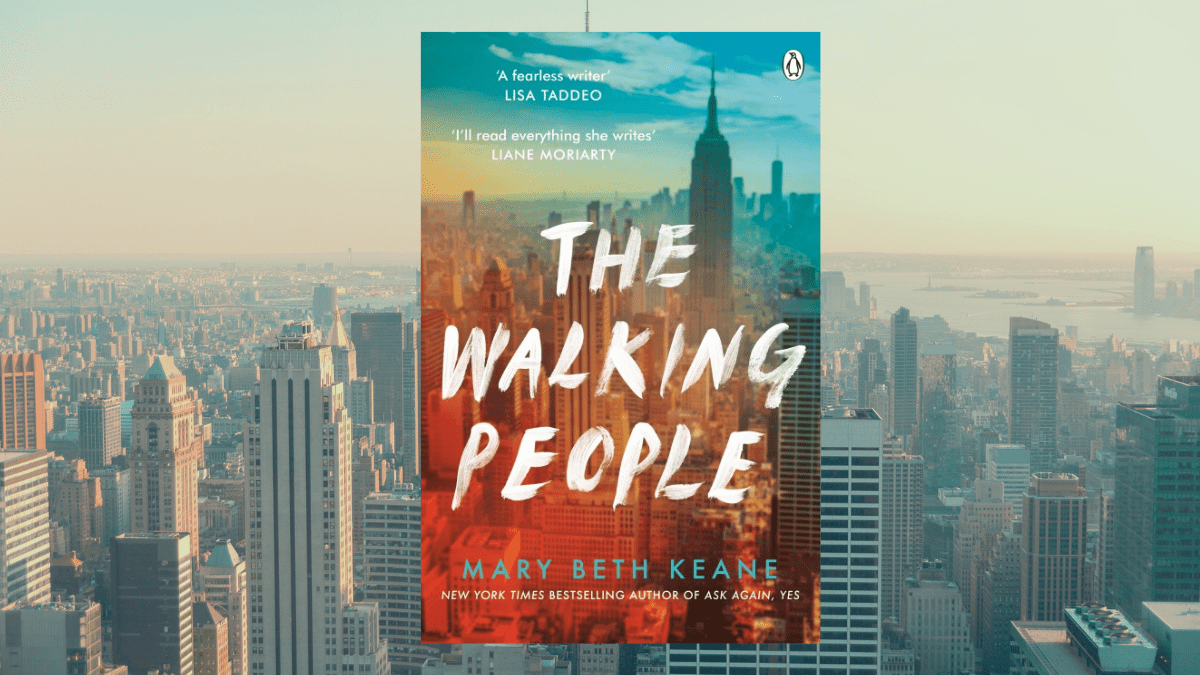
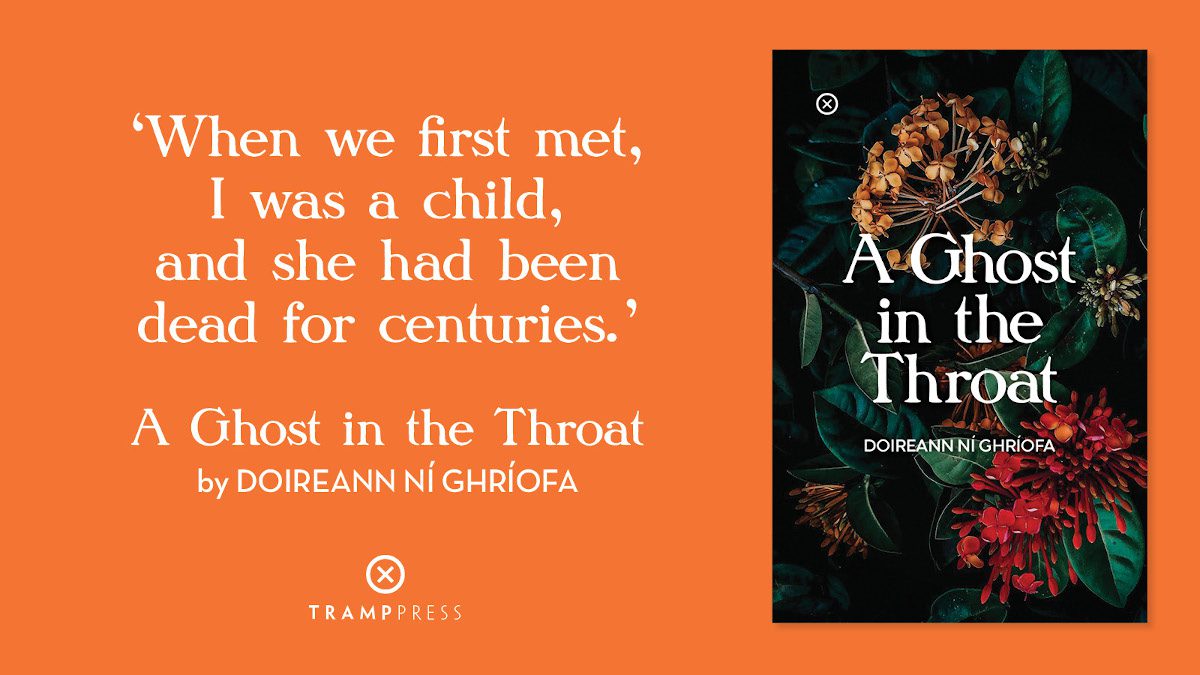

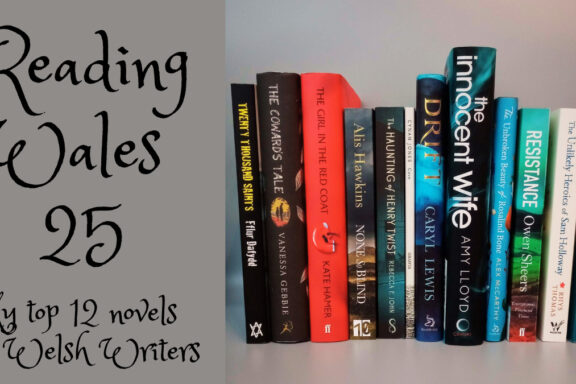
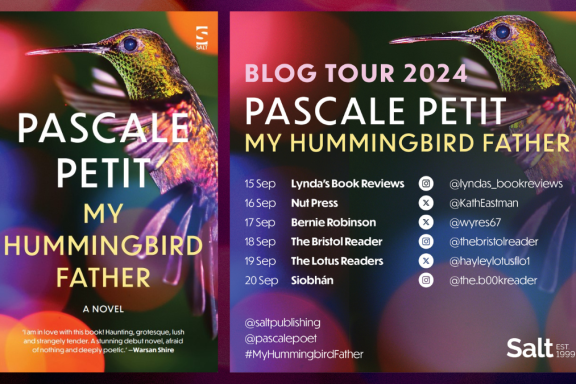
Thanks for this – I hadn’t heard of it and love the sound of it. Great escapism
It really is. Such a cracking read!